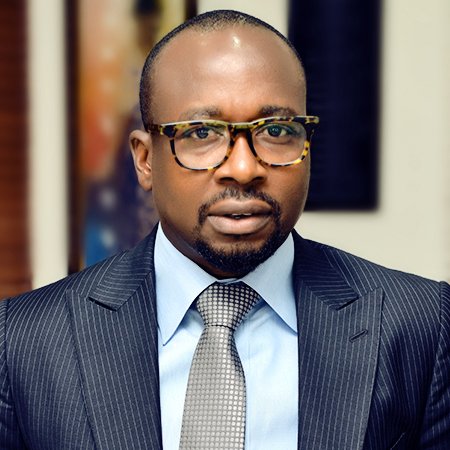BUSINESS
Century Energy’s CEO, Ken Etete Appraises 10 Years Of The Local Content Act

The Nigerian Local Content bill received presidential assent on April 2, 2010.
The Act was to provide a framework that would guide indigenous content and participation in the Nigerian oil and gas industry. The law also provided for the establishment of the Nigerian Content Monitoring Board (NCMB), charged with the responsibility of managing the coordination, monitoring and implementation of the new Local Content law.
The Act states without equivocation that “(1) Nigerian independent operators shall be given first consideration in the award of oil blocks, oil field licenses, oil lifting licenses and in all projects for which contract is to be awarded in the Nigerian oil and gas industry subject to the fulfilment of such conditions as may be specified by the Minister. (2) There shall be exclusive consideration to Nigerian indigenous service companies which demonstrate ownership of equipment, Nigerian personnel and capacity to execute such work to bid on land and swamp operating areas of the Nigerian oil and gas industry for contracts and services contained in the Schedule to this Act.”
10 years after the enactment of the Act, it seems fitting to appraise the Act and its enforcement from the perspective of an operator.
To fully understand what the Local Content Act means to a Nigerian entrepreneur working in the oil and gas ecosystem, we must retrace our steps to decades before the bill became law in 2010.
Our historical excursion will take us back to 1990 to a medical doctor called Professor Jubril Aminu, whose foresight and deliberate policy directions presaged in many ways what would become the Local Content Act 2010.
How did this happen? In November, 1990, Professor Aminu awarded oil blocks to 11 Nigerian entrepreneurs on a discretionary basis. He was convinced that Nigerians had worked long enough with the IOCs and gained enough requisite experience to run their own affairs.
That discretionary bid round gave rise to Queens Petroleum (OPL 135); Cavendish Petroleum (OPL 453); Consolidated Oil (Conoil) (OPL 113); Express Oil and Gas (OPL 74); Summit Oil International (OPLs 205 & 206); International Petrol Energy Co (OPLs 229 & 202); Paclantic Oil Co. (OPL 204); Inko Petroleum (Oriental Energy) (OPL 224);Ultramar Energy (OPL 227); Solgas (Nig) Ltd (OPL 226) and Atlas Petroleum (OPL 75). Chief Lulu Briggs was subsequently awarded an oil license bringing the number to 12.
That bid round signaled the beginning of serious indigenous participation in the oil and gas industry because before then the only indigenous player was Dr. Itsueli’s Dubri Oil which had come into being when Dr. Itsueli as Managing Director of Phillips Oil bought over a small field that was producing about 1,000 bopd at that time. Phillips felt the field was not worth their while from a commercial standpoint, so they decided to sell it. Dr. Itsueli formed a company, left Phillips and bought the Giligili fields. That was how Dubri came on stream in 1987, 4 years before Professor Aminu’s indigenization exercise.
The success of that exercise as seen today, most notably in Conoil, led to another exercise in 1999 under the Obasanjo regime when marginal fields were awarded to Nigerian entrepreneurs.
With Nigerians showing enterprise and capacity to run oil and gas companies, it was only a matter of time before a deliberate policy that would provide a framework for oil servicing companies would be made; thus privileging indigenous oil servicing companies and giving them a part of the lucrative pie hitherto enjoyed by the big international companies like Schlumberger, Haliburton and Baker Hughes.
Once the Coastal and Inland Shipping (Cabotage) Act, 2003 was signed into law, it was only a matter of time before the Local Content Act would come into effect and the rest is now history.
But it was not so simple. A policy of indigenous participation was only one half of the equation. Nigerian oil servicing companies needed to step up to the plate and prove they had the capacity to play in the big league and it was a case of preparation meeting opportunity for those already in the fray. The oil servicing business demanded expertise and experience as well as financial capacity and political will to make it happen.
The political will was provided by the establishment of the (NCMB), which was charged with the responsibility of managing the coordination, monitoring and implementation of the new Local Content law.
Century Group, where I administer and execute strategy has been in operation since 2002, were thus in prime position to demonstrate capacity to play in the new dispensation. 10 years down the line, Century Energy Services Limited, a member of the Century Group and others like Tecon Oil Services, Delta Marine Oil Services Ltd, Damagix Nigeria Limited, Ciscon Services, Chrome Oil, Denca Services, AOS Orwell, Petrok Oil and Gas, Tricon, Maerlin Ltd, etc., has demonstrated that Nigerian companies can provide bespoke and world class oil servicing support to the industry.
A recent news report with the caption – “Nigeria saves $2bn on LNG Train 7 through Local Content development” and quoting Mr. Simbi Wabote, Executive Secretary, (NCDMB) was the trigger for this rumination. The piece noted that Nigeria has saved “$2 billion on Engineering Procurement and Construction (EPC) contract for Nigeria LNG Train 7 Project” through implementation of the Nigerian Oil and Gas Industry Content Development (NOGICD) Act.
This is great news for an industry that is creating job opportunities, fostering economic prosperity and halting capital flight as well as ample demonstration of the Nigerian spirit of enterprise. The value creation and exchange that companies like Century Group, PFL Engineering, First Marine, IGPES Gas & Power have been able to contribute using local resources is phenomenal. The capacity, experience and aggregate assets that are now owned by indigenous companies proves how far the local content policy has come.
Ken Etete, Group CEO of Century Energy writes from Lagos.















